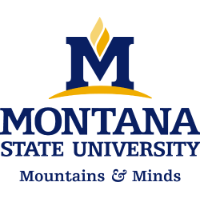What do they do?
Perform duties related to the purchase, sale, or holding of securities. Duties include writing orders for stock purchases or sales, computing transfer taxes, verifying stock transactions, accepting and delivering securities, tracking stock price fluctuations, computing equity, distributing dividends, and keeping records of daily transactions and holdings.
Also known as:
Account Administrator, Client Administrator, Client Associate, Client Service Associate, Operations Clerk, Operations Coordinator, Registered Account Administrator, Registered Sales Assistant, Sales Assistant, Sales Trader, Trading Assistant
-
-7%
Change
Ranks #36 in job growth rate160Job Openings
Ranks #15 in net job growth
-
Delaware County Community College
Media, PA
-
Cerritos College
Norwalk, CA
-
Montana State University
Bozeman, MT
Looking for colleges that offer a specific major? Use the College Match Tool to find your best-matched schools and discover your estimated Net Price!
- Doctorate or Professional Degree (2%)
- Master's degree (9%)
- Bachelor's degree (26%)
- Associate's degree (14%)
- Some college, no degree (28%)
- High school diploma equivalent (19%)
- Less than high school diploma (2%)
People in this career often have these skills:
- Active Listening - Giving full attention to what other people are saying, taking time to understand the points being made, asking questions as appropriate, and not interrupting at inappropriate times.
- Speaking - Talking to others to convey information effectively.
- Reading Comprehension - Understanding written sentences and paragraphs in work-related documents.
- Time Management - Managing one's own time and the time of others.
- Critical Thinking - Using logic and reasoning to identify the strengths and weaknesses of alternative solutions, conclusions, or approaches to problems.
People in this career often know a lot about:
- English Language - Knowledge of the structure and content of the English language including the meaning and spelling of words, rules of composition, and grammar.
- Customer and Personal Service - Knowledge of principles and processes for providing customer and personal services. This includes customer needs assessment, meeting quality standards for services, and evaluation of customer satisfaction.
- Mathematics - Knowledge of arithmetic, algebra, geometry, calculus, statistics, and their applications.
- Computers and Electronics - Knowledge of circuit boards, processors, chips, electronic equipment, and computer hardware and software, including applications and programming.
People in this career often have talent in:
- Oral Comprehension - The ability to listen to and understand information and ideas presented through spoken words and sentences.
- Oral Expression - The ability to communicate information and ideas in speaking so others will understand.
- Written Comprehension - The ability to read and understand information and ideas presented in writing.
- Near Vision - The ability to see details at close range (within a few feet of the observer).
- Written Expression - The ability to communicate information and ideas in writing so others will understand.
- Speech Recognition - The ability to identify and understand the speech of another person.
- Speech Clarity - The ability to speak clearly so others can understand you.
- Information Ordering - The ability to arrange things or actions in a certain order or pattern according to a specific rule or set of rules (e.g., patterns of numbers, letters, words, pictures, mathematical operations).
- Problem Sensitivity - The ability to tell when something is wrong or is likely to go wrong. It does not involve solving the problem, only recognizing that there is a problem.
People in this career often do these activities:
- Confer with coworkers to coordinate work activities.
- Respond to customer problems or complaints.
- Prepare documentation for contracts, transactions, or regulatory compliance.
- File documents or records.
- Schedule operational activities.
- Coordinate operational activities.
- Monitor financial information.
- Answer telephones to direct calls or provide information.
- Distribute incoming mail.
- Verify accuracy of financial or transactional data.
- Calculate financial data.
- Prepare research or technical reports.
This page includes data from:

 Occupation statistics: USDOL U.S. Bureau of Labor Statistics Occupational Employment Statistics
Occupation statistics: USDOL U.S. Bureau of Labor Statistics Occupational Employment Statistics
 Videos: CareerOneStop, USDOL/ETA and the Minnesota Department of Employment & Economic Development
Videos: CareerOneStop, USDOL/ETA and the Minnesota Department of Employment & Economic Development





